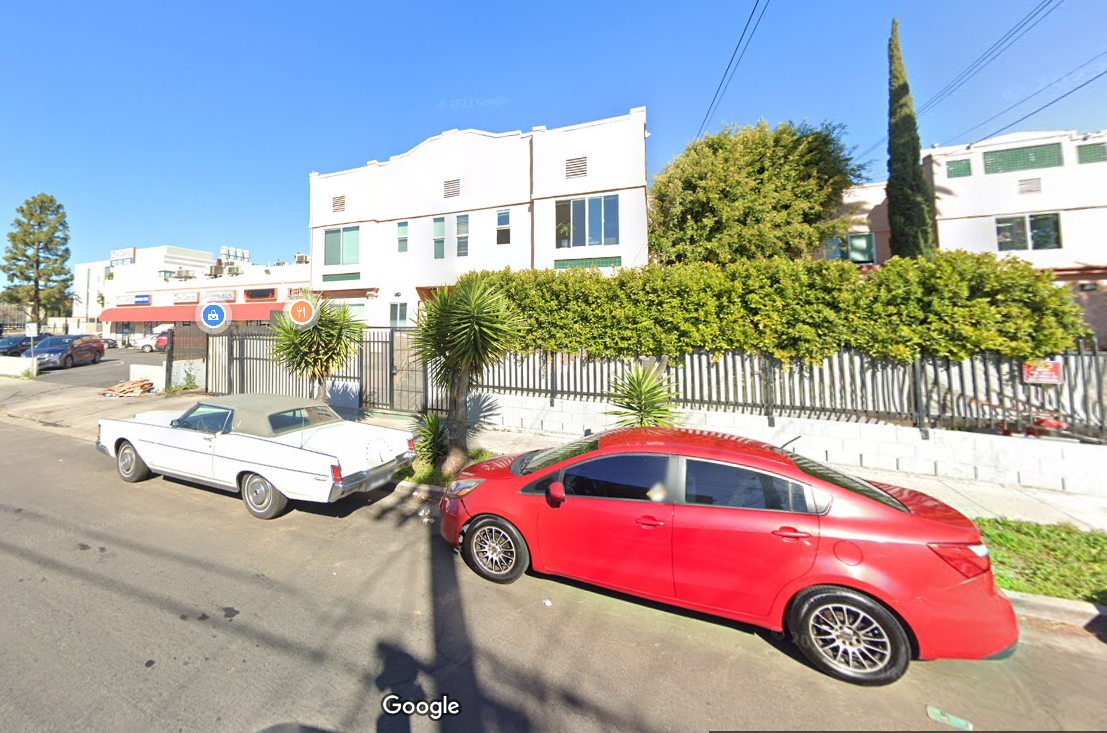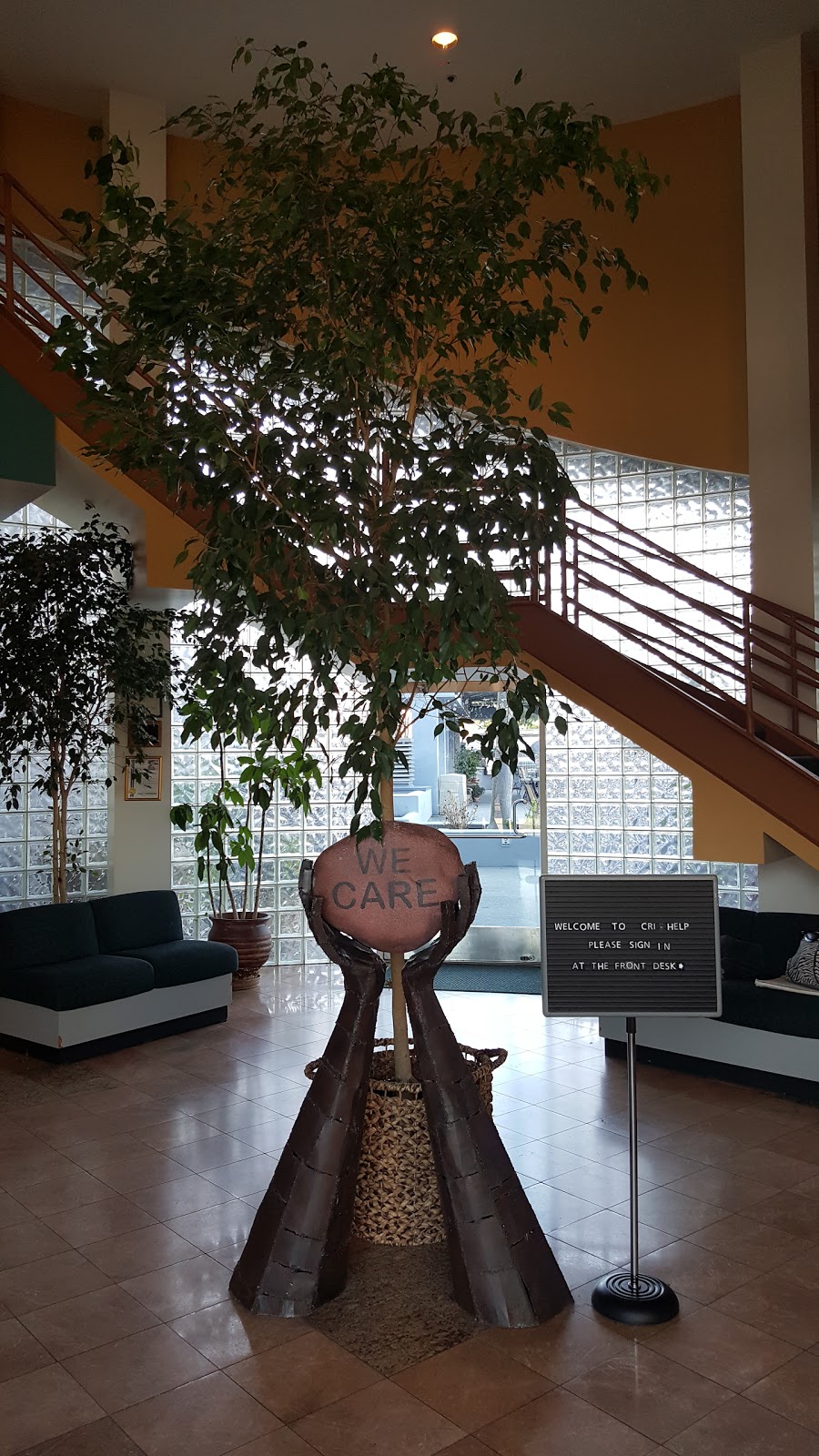Cri Help - Socorro
Overview
Cri-Help’s Socorro Residential Treatment Center, located in Los Angeles, California, is a comprehensive alcohol and drug addiction treatment center for adults. The facility provides a continuum of care designed to address the mental, physical, and spiritual aspects of addiction through careful planning at each stage of treatment. Their programs include medically supervised detoxification, medication-assisted treatment, residential and outpatient programming, and aftercare services.
Board-certified addiction medicine physicians oversee the medically supervised detox process, ensuring each treatment is carefully planned with a personalized protocol designed to safely and effectively remove addictive substances from the client’s body. Comfort is a priority, and medications are used to support detox and comfort levels throughout the stay. Providers can administer FDA-approved addiction medications to alleviate withdrawal pain, minimize cravings, and lower relapse risk. Combining medication with mental health treatment provides a greater chance of success for long-term abstinence, with each medication plan tailored to individual needs.
The residential program at Cri-Help Socorro is for those requiring a high level of care and support during the initial stages of treatment. Participants engage in individual and group counseling, integrated health and counseling, and vocational support services. Additional services include recreational and fitness activities, family education, neurofeedback, trauma groups, grief counseling, treatment for co-occurring mental health conditions, and daily 12-step meetings.
The outpatient program offers flexible services, requiring participation for 5 to 40 hours per week. Traditional outpatient levels of care are available to clients who have completed residential treatment and seek additional support while reintegrating into daily life. Intensive services are available for those needing a step down from residential care, allowing for a gradual tapering of treatment time each week. The program combines peer support, family support, and recreational activities with clinical and therapeutic interventions, with the duration depending on individual goals and needs.
Aftercare services at Cri-Help Socorro include connections and referrals to local providers for additional recovery support. Program alumni and current outpatient clients can participate in the Transitional Living program, which offers an affordable sober living environment and access to ongoing 12-step programming.
Cri-Help is in-network with a majority of commercial insurance providers, and clients are encouraged to speak with their providers to confirm coverage as out-of-network benefits may vary.
Cri-Help promises a caring and competent staff dedicated to helping clients through each step toward rehabilitation from drugs and alcohol. The extensive treatment process begins with addressing core using patterns and building healthy life skills, followed by connecting clients with a community of people with long-term sobriety. Continuous recovery support is provided after program completion to ensure sustained success.
Cri-Help understands the fear, pain, and disappointment associated with addiction and offers a supportive environment where individuals can feel whole again. At Cri-Help, miracles happen every day, and the dedicated team is committed to witnessing and facilitating these transformations.
Cri-Help’s Socorro Residential Treatment Center holds CARF Accreditation (Accreditation Number: 28148) and is listed by SAMHSA, reflecting its commitment to maintaining the highest standards of care in addiction treatment and mental health services. These accreditations ensure that clients receive exceptional, evidence-based care in a supportive and regulated environment.
Cri Help - Socorro at a Glance
Payment Options
- Access to Recovery (ATR) Voucher
- Private health insurance
- Cash or self-payment
- State-financed health insurance plan other than Medicaid
- Payment assistance (check with facility for details)
Assessments
- Comprehensive mental health assessment
- Comprehensive substance use assessment
Age Groups
- Adults
- Young adults
Operation
- Private non-profit organization
Accreditations
Commission on Accreditation of Rehabilitation Facilities (CARF):

CARF accreditation is a globally recognized certification for rehabilitation and human service organizations. It signifies that an organization meets high-quality standards and is committed to providing top-level care. Achieving CARF accreditation involves a rigorous evaluation process, including on-site surveys. This accreditation enhances an organization's reputation, instills trust in clients and funders, and encourages ongoing excellence in the field.
Registration: 28148
SAMHSA certification for opioid treatment program (OTP):
Accreditation by the Substance Abuse and Mental Health Services Administration (SAMHSA) for Opioid Treatment Programs (OTPs) signifies that a program has met strict standards for providing high-quality care to individuals with opioid use disorders. It assures patients, families, and communities that the OTP follows evidence-based practices, employs qualified staff and maintains a safe and effective treatment environment. This accreditation reflects the program's commitment to addressing the opioid epidemic and promoting recovery.
Treatment At Cri Help - Socorro

Conditions Treated
Mental health treatment:
Mental health facilities offer a safe space for individuals to get specialized care. Trained experts create personal plans using therapies, possibly including medication. The goal is to help individuals cope better and lead fulfilling lives, with constant support and a community feel.
Alcoholism:
Alcohol addiction is a health problem where drinking takes control over a person's life. It affects how their brain thinks and acts, leading to strong desires to drink, bad feelings, sudden actions, and discomfort when not drinking. To help someone with this problem, there are treatments like detox, counseling, group support, and learning coping methods. While treatment can't completely cure the urge to drink, it helps people regain control of their lives and feel better overall.
Opioid Addiction:
Opioid addiction rehabilitation is a specialized treatment process tailored to address the unique challenges and complexities of opioid dependence, including drugs like heroin and prescriptions like oxycodone. The process typically begins with a medical detox to ease withdrawal symptoms, followed by therapeutic interventions to address the root causes of addiction. This holistic approach aims to provide individuals with the skills and support needed for long-term recovery from opioid use.
Substance use treatment:
Substance use rehabilitation represents a holistic treatment strategy tailored to aid individuals grappling with drug or alcohol addiction. This comprehensive rehabilitation method encompasses two key aspects: first, addressing the physical dependency, often commencing with detoxification, and second, tackling the psychological triggers through a range of therapeutic techniques. The ultimate aim is to empower individuals to attain and sustain sobriety while providing them with the necessary skills and coping mechanisms to successfully reintegrate into society and lead a life free from substance abuse.
Co-occurring Disorders:
Dual-diagnosis rehabs are usually the appropriate solution to treat co-occurring mental health and substance abuse disorders. These facilities typically employ medical and behavioral experts who use a range of interventions, together with the right healing environment, for you to achieve and sustain long-term recovery. Treatment usually includes evidence-based therapies (like cognitive behavioral therapy), recovery support meetings, 12-step facilitation, psychoeducation, skills training, and group therapy.

Levels Of Care
Detoxification:
Detoxification, often shortened to detox, is like giving the body a fresh start by getting rid of harmful substances like drugs or alcohol someone may have taken. When a person stops taking these substances, they might feel sick or uncomfortable as their body adjusts to the change. Detox helps ease these uncomfortable feelings while making sure the harmful substances are removed from the body in a safe way. This process helps prevent any additional harm caused by the drugs or alcohol.
Aftercare:
Aftercare refers to the structured support and programs offered to individuals after completing an initial treatment phase for substance abuse or other disorders. Recognizing that recovery is an ongoing process, aftercare provides continued counseling, skill-building, group therapy, and resources to help individuals maintain sobriety, manage triggers, and reintegrate into daily life, reducing the risk of relapse and ensuring long-term success in recovery.
Halfway house:
A sober living home offers a supportive environment where individuals in recovery provide mutual support as they share household responsibilities. Residents participate in 12-step programs and offer accountability for sobriety. To remain in men’s or women’s sober living, individuals must remain drug and alcohol-free, contribute to chores, attend support group meetings, and help cover expenses to live in the home.
Outpatient:
Outpatient treatment in a rehab center offers flexible therapy sessions, typically ranging from 1-3 hours per week, allowing individuals to continue daily activities while receiving care. In contrast, intensive outpatient programs demand a more rigorous commitment, often involving 9-15 hours weekly, providing a more immersive therapeutic environment without the need for inpatient stays.
Hospital inpatient treatment:
Inpatient treatment involves an intensive, residential therapeutic program designed to treat serious addictions or other medical conditions. With a typical stay ranging from 30 to 90 days, individuals receive a structured regimen of various therapies including individual and group counseling, behavioral therapies, and family counseling. Under professional supervision, patients immerse themselves in a supportive environment, conducive to addressing underlying issues and promoting long-term recovery.

Treatment Modalities
12-step facilitation:
12-Step Facilitation is a structured approach employed in rehab facilities to guide individuals through a 12-step program, such as Alcoholics Anonymous or Narcotics Anonymous, to support their recovery from addiction. This facilitation focuses on acceptance, surrender to a higher power, and engagement in a community of support. By meticulously working through each step, individuals are encouraged to develop self-awareness, seek amends, and cultivate a sober, healthier lifestyle through ongoing participation in a recovery-oriented community. This method aims at ensuring a lasting recovery by instilling a sense of accountability and fostering a supportive network of like-minded individuals.
Individual psychotherapy:
In individual therapy, a person engages in a one-on-one session with a qualified therapist or counselor. This therapeutic approach is crucial in successful substance abuse treatment because it delves into the underlying causes of addiction, addressing issues the individual may encounter in their familial, social, and professional or academic environments.
Group counseling:
Group Counseling is a therapeutic approach where individuals come together under the guidance of a trained counselor to share experiences, provide mutual support, and gain insights. It fosters a sense of community, promotes understanding through diverse perspectives, and offers personal growth and problem-solving strategies.
Family counseling:
Family Counseling is a therapeutic approach that seeks to address and improve communication, understanding, and dynamics within a family unit. By addressing conflicts, emotional distress, and behavioral challenges, a trained therapist provides guidance and tools for family members to strengthen bonds, resolve issues, and foster a healthier family environment.
Trauma-related counseling:
Trauma-related counseling addresses the deeply rooted psychological wounds and distress that often coexist with substance use disorders. Recognizing that past traumatic experiences can play a significant role in the onset and persistence of addiction, this therapeutic approach aims to help individuals understand and process their trauma, develop coping skills, and work towards healing. Individuals are better equipped to achieve long-term recovery and improved mental well-being by simultaneously addressing both trauma and addiction.
Life Skills:
Life skills training encompasses a comprehensive set of abilities essential for individuals to thrive in society. These encompass time management, career guidance, financial acumen, and effective communication. In the context of addiction recovery, true success goes beyond mere abstinence; it's about flourishing. Life skills instruction equips individuals with the practical tools needed to navigate society successfully, paving the way for a fulfilling life and, consequently, lasting sobriety.
Holistic Treatment:
Holistic treatment in a treatment center encompasses a comprehensive approach towards achieving mental, physical, and emotional wellness during addiction recovery. Unlike traditional treatments that focus solely on combating addiction, holistic treatment delves into the underlying issues contributing to substance abuse, providing individuals with the tools to achieve lasting recovery. By integrating a variety of therapeutic modalities such as yoga, meditation, nutritional counseling, and alternative therapies like acupuncture, a holistic rehab aims to nurture the individual's overall well-being, fostering a balanced path towards a drug-free life.
Ancillary Services
Languages
- Spanish
Special Programs
- Clients with HIV or AIDS
- Clients who have experienced trauma

Additional Locations
Contact Information
DISCLAIMER: The facility name, logo and brand are the property and registered trademarks of Cri Help - Socorro, and are being used for identification and informational purposes only. Use of these names, logos and brands shall not imply endorsement. BetterAddictionCare.com is not affiliated with or sponsored by Cri Help - Socorro.





